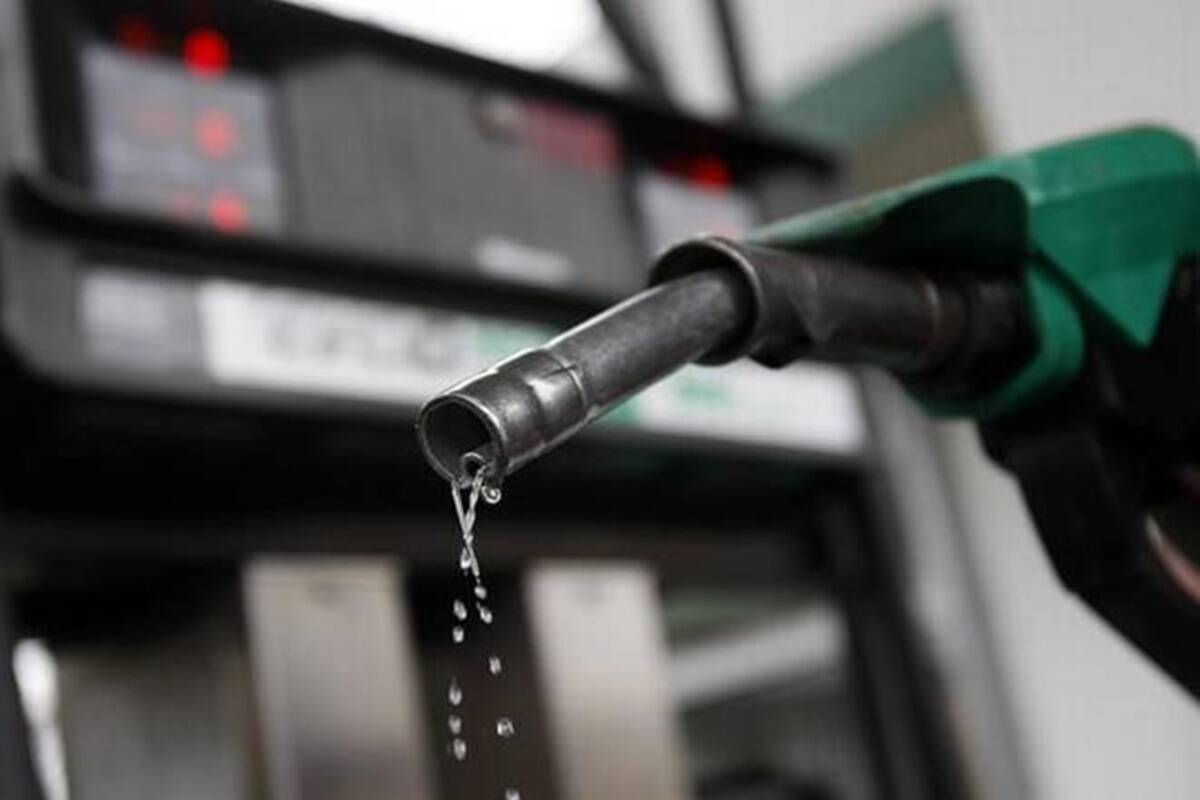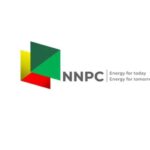Nigeria’s national oil company, NNPC Limited, has spent N864bn to subsidise Premium Motor Spirit, or petrol, in eight months this year.
But for the subsidy, the money would have been remitted to the Federation Account Allocation Committee (FAAC).
- 9 men remanded for attacking Osun monarch
- DSS nabs lecturers who ‘leaked exam questions to students’
The FAAC allocation is a pool where federal revenue generating agencies remit their proceeds which include oil revenue, taxes, port charges, Customs and Excise revenues, among others. This revenue is then shared among the federal, state and local governments.
Nigeria is in tight corner amid divergent views on the desirability and otherwise of subsidising petrol.
Many analysts and international organisations have variously called for the scrapping of the subsidy because it mops enormous resources that ought to be used to diversify the economy and help the poor to prosper.
The country imports most of the petrol it consumes and pays with proceeds from crude oil sales.
Experts believe there are many discrepancies in the chain of activities leading to the importation of petrol products, payment and distribution.
They said the only way to get it right is by ensuring that Nigeria’s refineries are working and leakages blocked.

Latest revelation
According to the latest Federation Account Allocation Committee (FAAC) report for October, NNPC has spent N864.074 billion subsidising petrol from February to September.
It called it “under-recovery of PMS value shortfall.”
The record showed that but for the subsidy expenses it made, NNPC ought to have remitted a total of N1.361tr to FAAC in the eight months.
This meant that only N496.8bn came from NNPC to the pool representing a paltry 36% as the larger chunk of about 64% went for petrol subsidy.
A breakdown of the subsidy payment shows that there was no subsidy spent in January but NNPC spent N25.37bn in February and that figure rose almost three times in March to N60.396bn.
The corporation then spent N61.966bn in April which more than doubled to N126.298bn in May, following a reported higher rise in the landing cost of imported petrol.
The national oil company further incurred a higher cost in petrol subsidy of N164.337bn in June but which declined to N103.286bn in July.
However, by August, the gain was reversed when subsidy cost rose to N173.132bn, the highest figure published so far.
In September, the subsidy dropped to N149.283bn, culminating in the N864bn within the eight months.

FAAC gets N496.8bn in 8 months
Further analysis showed the company remitted N496.817bn oil proceeds to FAAC for eight months of this year as it skipped remittance in April.
The breakdown of the remittance showed that NNPC remitted N90.860bn in January, but the figure dropped to N64.161bn in February and further depleted to N41.184bn in March 2021.
There was no remittance in April which was said to have gone for subsidizing petrol pump price per litre to keep it at the N162 to N165 price band.
By May, the remittance to FAAC dropped to N38.608bn but rose significantly to N47.162bn in June and higher to N67.280bn in July before hitting N80.030bn in August.
The company then remitted N67.533bn to FAAC in September, which is N13bn less than what it remitted in August.
N407bn earned from crude, gas sales
The latest NNPC FAAC report showed the company earned about N407bn from the sales of crude oil and gas in September 2021, on both export and domestic terms.
The public oil firm sold N3.22bn (about $8.38m) worth of exported crude, just as feedstock valued at $59.84m was sold to the Nigeria Liquefied Natural Gas (NLNG), of which $52.98m (N21.5bn) was received.
In August, the overall NNPC crude oil lifting of 5.79 per 1,000 barrels of oil (mbbls) for both export and domestic crude recorded a 33.5 per cent decrease compared to the 8.71 Mbbls lifted in July. On crude oil production, NNPC said the country recorded 1.417 mbpds production in August.
In the report signed by its Chief Financial Officer, Bello Abdullahi, NNPC said it also received $285m (N118bn) as miscellaneous receipts, gas and ullage fees and interest income, while it got N265.1bn as gross domestic crude oil and gas revenue in the month under review.
The company said it made deductions especially from the domestic earnings which included N629.3m for strategic holding cost and pipeline repairs.
A breakdown of this showed that N526.8m went for pipeline repairs while N102.5m was for pipeline management cost in September. Other expenses were N1.672bn for product and another N149.3bn as value shortfall.
Rising subsidy raises dust
The continuous spending on fuel subsidy meant the revenue available to the three tiers of government will keep on shrinking against the wish of some stakeholders among them state governors.
In May 2021, the Nigerian Governors Forum (NGF) committee on fuel subsidy, at a virtual meeting chaired by Kaduna State Governor Nasir El-Rufai, in a report, recommended petrol price of between N380 and N408.5 per litre.
The committee also called for the immediate removal of fuel subsidies.
El-Rufai said the current subsidy regime was unsustainable, adding that only smugglers and illegal marketers benefit from it. He also said Nigeria could not fully benefit from the recent production cut by the Organisation of Petroleum Exporting Countries (OPEC) which was meant to keep fuel prices high because of subsidies.
“Between N70bn and N210bn is estimated to be spent every month to keep gasoline price at N162 per litre, this is below the cost price and the remittance to the federation account will shrink to less than N50bn per month or even zero if threats persist,” he said.
The Minister of State, Petroleum Resources, Timipre Sylva, recently reiterated that the government was committed to ensuring the total removal of subsidy from next year, especially with the implementation of the Petroleum Industry Act (PIA) as Nigerians await the impact of the decision.
Also, the 14th Emir of Kano and former Governor of the Central Bank of Nigeria (CBN), Muhammadu Sanusi II, at the recent Nigerian Economic Summit in Abuja, backed the removal of subsidy saying the federal government was indulging in illegality by paying petroleum subsidies from the federation account.
The Minister of Finance, Budget and National Planning, Zainab Ahmed, at the NES event, said the federal government had made provision for petrol subsidy till the end of June next year, adding that complete deregulation of the downstream oil and gas sector will start by July 2022.
President Muhammadu Buhari enacted the Petroleum Industry Act (PIA) in July and reforms of agencies are ongoing.
Fix refineries to get it right – Experts
Speaking with Daily Trust, experts said the money paid on subsidy could be used for more beneficial capital projects across the country.
Oil industry analyst, Suraj Oyewale said, “Subsidy removal is long overdue. From a purely economic standpoint, a subsidy is a major distortion to the market and it should go. Let the prices reflect the market condition rather than decreasing prices and bleeding government finances (or even borrowing) to fund the subsidy.
“I cannot say how easy it will be for the government to achieve this but there is never really an easy time”, he said.
Oyewale said Nigeria must refine its oil locally to save foreign exchange.
“Local refining reduces the foreign exchange component of the conundrum. It is not too late a policy; legislating the international oil companies to build refineries in Nigeria may also help in solving the problem. The FG also needs to fully deregulate once and for all,” he said.
On his part, an economic expert, Simon Samson Galadima, said, “Management of any resource by the government has always been catastrophic.
“More so, the Nigerian government has been beyond grossly incompetent in the management of things. This can easily be considered as billions go down the drain. These refineries are better off being sold off or at least concessioned or commercialised. That would better yield results.”

 Join Daily Trust WhatsApp Community For Quick Access To News and Happenings Around You.
Join Daily Trust WhatsApp Community For Quick Access To News and Happenings Around You.


